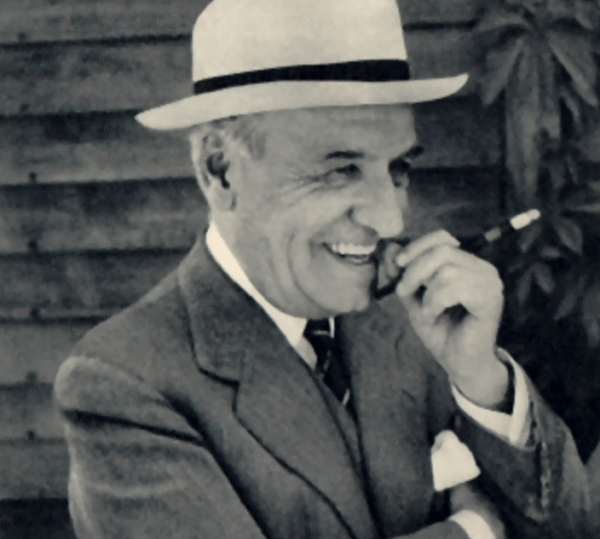Five Influential Philosophers in Psychology

Psychology, as a discipline, was born in 1879 at the hand of Wilhelm Maximilian Wundt, in Leipzig, Germany. He was one of the most influential physiologists and philosophers. In fact, he created the first experimental psychology lab. Since then, this discipline began to answer questions about human behavior by adhering to the scientific method.
Before that, human behavior and any questions circumscribed to it were dealt with by many philosophers through thought and reflection.
It’s difficult to know when psychology originated. Nevertheless, its contributions to human knowledge are over 2500 years old. However, it’s a lot when compared to the age and the path of psychology. Still, it’s quite evident that psychology wouldn’t be the same without a discipline like philosophy. This is because it derives from it.
Five influential philosophers in psychology
Many ancient Greek philosophers sought answers to the question “Why do humans behave the way we do?” How did they try to answer it? Through reflection and argument, mainly. In fact, many of the reflections and arguments became philosophical currents, such as Rationalism or Empiricism.
Philosophy has contributed a lot to psychology in these 2500 years. Below, discover five of the most influential philosophers and their contributions to psychology.
Lucius Annaeus Seneca
He was born in Cordoba, in IV B.C. and was one of the best-known thinkers in history. Furthermore, his philosophical contributions centered on the practical aspects of life. He wasn’t given to the theorization of life, of wandering as an exercise for personal growth.
In a certain way, he’s one of the most influential philosophers. After all, coaching is nothing more than the adaptation of the thoughts of philosophers like Seneca to the current world. Curiously, there are certain parallels between Seneca and the figure of the current coach. This is due to his vocation to help find people’s best version of themselves.

René Descartes
Born in France in 1596, Descartes was one of the most influential philosophers. Psychology isn’t the only discipline he influenced. In fact, other disciplines such as mathematics greatly benefited from his contributions.
The ordinate and abscissa axis used for representing mathematical functions are proof of this. Many people also refer to them as a Cartesian coordinate system.
The main contribution to psychology by Descartes was the Cartesian dualism. It wasn’t a positive contribution for many, because it divided the way in which they understood human beings. Cartesian dualism was based on a distinction between the mind and the body as two different concepts.
This distinction is still valid. You may not be conscious of it but people speak of either mental problems or physical problems, ignoring the fact that one and the other are related. This is because it’s a more didactic than real distinction.
“It isn’t enough to have a good mind. The main thing is to use it well.”
-Rene Descartes-
Jean-Paul Sartre, one of the most influential philosophers
This Parisian philosopher and playwright born in 1905 gave importance to the concept of freedom, especially in his book, Existentialism Is a Humanism.
According to Sartre, people are fully aware of who they are and how they behave. However, his position is extreme for many. This is because he denies any kind of biological or social determinism. He claims that people are architects of their own destiny because they’re free.
This extreme freedom makes humans undeniably responsible for their behavior and its consequences, and also for their happiness. Even though it’s an extreme concept, this responsibility is definitely granted to patients in therapy.
José Ortega y Gasset
Ortega y Gasset was born in Madrid, Spain in 1883. He’s the father of perspectivism, a theory that emphasizes the validity of individual experience as part of the truth. In fact, absolute truth is the sum of all individual perspectives. In other words, perspectivism holds that it’s impossible to know the absolute truth from an individual perspective.
The heritage of perspectivism in psychology is important, especially in applied psychology. Without going any further, psychologists shouldn’t impose their point of view on their patients in the clinical field. This is because they’d be committing malpractice if they did. Their main task is to make the necessary tools to evoke change available to the patient.

Socrates
He was born in Athens in 470 B.C. Many consider him the father of philosophy. In fact, he’s one of the philosophers who’s added the most to the construction of psychological intervention.
In psychology, carrying out a good Socratic dialogue is determinant for the future of the intervention. In other words, it’s a question of the casuistry a psychologist treats.
Socrates has been one of the most influential philosophers for psychology, especially in its more clinical aspect. In it, what’s popularly known as Socratic dialogue directly alludes to the Mayeutic, a Socratic method that consisted of making students discover truths by themselves, through questions that made them think and reach their own conclusions.
Some psychological interventions would be meaningless without this method. This is because it allows patients to evoke their own changes without a therapist determining them.
Although psychologists are experts in general behavior, each person is an expert in their own behavior. Thanks to maieutics, psychology can teach patients to be the best analysts of their own behavior.
Philosophy is a part of human life, so much so that it not only influences psychology but many other disciplines as well.
All cited sources were thoroughly reviewed by our team to ensure their quality, reliability, currency, and validity. The bibliography of this article was considered reliable and of academic or scientific accuracy.
- Clarke, Desmond. La filosofía de la ciencia de René Descartes Alianza Universidad.
- Ortega y Gasset, José. Obras completas, Vol. I. Ed. Taurus/Fundación José Ortega y Gasset, Madrid, 2004, p. 757.
- Sartre: The Philosopher of the Twentieth Century.
This text is provided for informational purposes only and does not replace consultation with a professional. If in doubt, consult your specialist.








